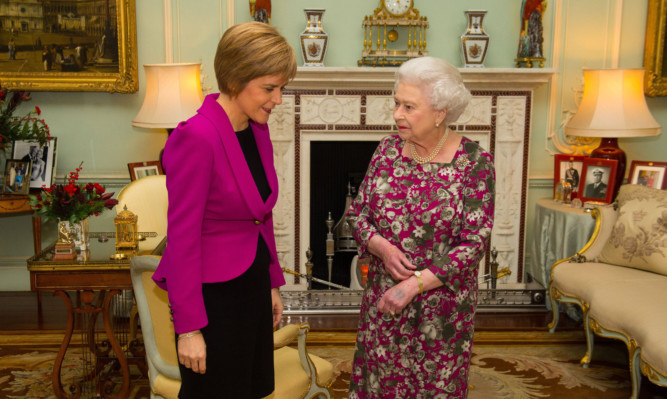
Can the new year be as momentous for Scotland as the year just past?
On the face of it that seems impossible. 2014 had the Commonwealth Games, the dancing Tunnock Teacakes, the biggest ever Scots medal tally, the best summer weather and a victorious Ryder Cup.
Politically speaking, of course, it also had the independence referendum with a record-breaking turnout and an extraordinary aftermath where support for Yes-oriented politics kept growing despite the No vote. Expect more in 2015.
The new year could also see a common cause at Holyrood. All parties (bar the Tories) may sink their differences to support the Land Reform Bill which proposes that: ministers should intervene when landowners are grossly negligent or trying to snaffle up big chunks of Scotland; children should get equal rights to inherit land; sporting estates should pay business rates; and local people should be involved in decisions about the management of big sporting estates.
These welcome changes will bring Scotland into the 21st Century but are hardly revolutionary. 500 people own more than half of Scotland that’s the most elite pattern of land ownership in the developed world and it won’t change fast. If Labour and the Lib Dems step up to the plate however, the bill will pass.
Meanwhile, if Jim Murphy means what he says about bringing power closer to people, he could call for a new tier of properly-funded town, island and rural councils. Scotland currently has the largest councils in Europe perhaps that’s why the Scottish Social Attitudes Survey found only 22% of Scots feel they can tackle local problems.
Cosla the umbrella body for our super-sized councils called for radical change in 2014.
Will Jim’s deputy Kezia Dugdale amend the Community Empowerment Bill to shift cash and resources not just responsibility to the valiant volunteers struggling to stop our small towns from dying on their feet? Let’s see.
In 2015, Hillary Clinton looks set to win the Democratic nomination and become the first female president of the USA in 2016. Vladimir Putin may cool his jets in the Ukraine as international sanctions and domestic opposition bite. Oil may sink lower than $50 a barrel as the Saudis try to punish President Putin and bankrupt rival shale oil producers. Nicola Sturgeon will have to step in to save Scotland’s fledgling marine energy industry.
And of course, there will be a General Election.
The bookies currently predict the Tories will win without a working majority more MPs than all the opposition parties combined. Nicola Sturgeon has already said her party won’t support a Tory administration and David Cameron won’t touch arch rivals UKIP with a bargepole. So there’s speculation of a ‘National Government’ bringing Labour and Conservatives into power together.
That move sounds unbelievable but the alternative options are a minority government, bumping along unpredictably from vote to vote or a quick second ballot. That’s been happening across Europe as governments with slender majorities have budgets defeated and weary voters must head to the polling stations all over again.
Of course a National Government wouldn’t be easy to construct or to lead. Far better for Scots to have a Labour Government supported by the SNP.
Can that still happen?
Well, 2014 surely proved one thing anything is possible.

Enjoy the convenience of having The Sunday Post delivered as a digital ePaper straight to your smartphone, tablet or computer.
Subscribe for only £5.49 a month and enjoy all the benefits of the printed paper as a digital replica.
Subscribe